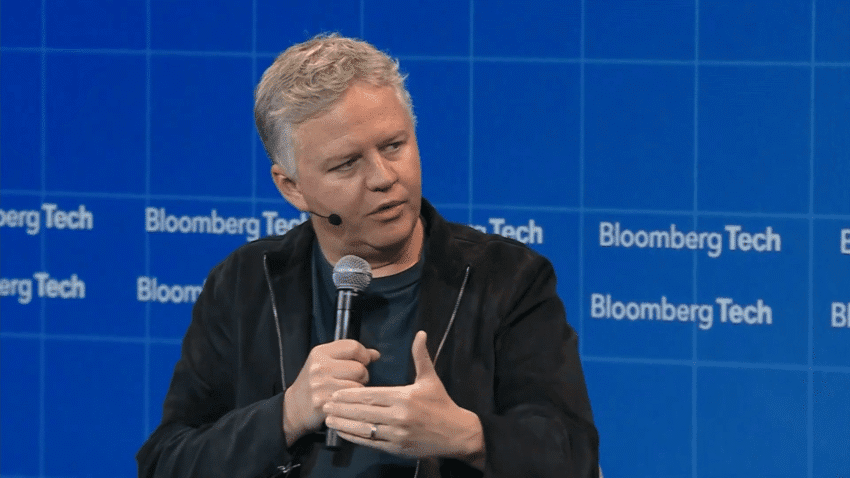
cloudflare ceo matthew prince is pushing uk Cloudflare CEO Matthew Prince is advocating for regulatory action against Google, asserting that the company’s dominance in search engines provides it with an unfair advantage in the burgeoning field of artificial intelligence.
cloudflare ceo matthew prince is pushing uk
Background on Google’s Dominance
Google has long been recognized as the leader in the search engine market, commanding a significant share of global search traffic. According to recent statistics, Google holds over 90% of the search engine market, making it a formidable player in the digital landscape. This dominance not only shapes how information is accessed but also influences the development of technologies that rely on search capabilities, including artificial intelligence.
The search engine’s algorithms and data collection methods have allowed Google to build a vast repository of information, which is essential for training AI models. This has raised concerns among competitors and regulators about the implications of such concentrated power in the hands of a single entity. Critics argue that Google’s control over search results can stifle innovation and limit the opportunities for smaller companies to compete in the AI space.
Matthew Prince’s Position
Matthew Prince, the co-founder and CEO of Cloudflare, has been vocal about his concerns regarding Google’s practices. In a recent statement, he emphasized the need for regulators to take action to ensure a level playing field in the AI sector. He argues that Google’s search dominance not only affects competition but also raises ethical questions about data privacy and the potential for misuse of AI technologies.
Prince’s call for regulatory intervention is not an isolated stance; it reflects a growing sentiment among tech leaders and policymakers who are increasingly wary of the implications of unchecked corporate power in the tech industry. His advocacy for unbundling Google’s search and AI crawlers is rooted in the belief that such measures could foster a more competitive environment, ultimately benefiting consumers and innovation.
The Implications of Unbundling
Unbundling Google’s search and AI crawlers could have significant implications for the tech landscape. By separating these components, regulators could potentially reduce Google’s ability to leverage its search dominance to enhance its AI capabilities. This could open the door for smaller companies and startups to compete more effectively in the AI space, leading to a more diverse range of products and services.
Moreover, unbundling could lead to increased transparency in how data is collected and used. Currently, Google’s integrated approach allows it to combine search data with AI training, raising concerns about data privacy and the ethical use of information. By separating these functions, regulators could impose stricter guidelines on data usage, ensuring that consumer privacy is prioritized.
Potential Benefits for Consumers
One of the primary arguments in favor of unbundling is the potential benefit to consumers. A more competitive AI landscape could lead to improved products and services, as companies strive to differentiate themselves in a crowded market. Consumers could see advancements in AI technologies that are more aligned with their needs and preferences, rather than being limited to the offerings of a single dominant player.
Additionally, increased competition could drive down prices for AI-related services. As more companies enter the market, the pressure to innovate and provide value to consumers could lead to cost reductions, making advanced AI technologies more accessible to a broader audience.
Challenges and Concerns
While the idea of unbundling Google’s search and AI crawlers presents several potential benefits, it is not without challenges. One of the primary concerns is the feasibility of implementing such a regulatory change. The tech industry is characterized by rapid innovation, and regulators often struggle to keep pace with technological advancements. There is a risk that overly stringent regulations could stifle innovation rather than promote it.
Furthermore, there are questions about how unbundling would be enforced. Google has a complex ecosystem that integrates various services, and untangling these components could be a daunting task. Regulators would need to establish clear guidelines and frameworks to ensure compliance, which could require significant resources and expertise.
Stakeholder Reactions
The call for unbundling has elicited a range of reactions from various stakeholders in the tech industry. Some industry leaders have expressed support for Prince’s position, arguing that it is essential to address the power dynamics in the tech landscape. They believe that regulatory action could pave the way for a more equitable market, fostering innovation and competition.
On the other hand, some critics argue that unbundling could have unintended consequences. They caution that breaking apart Google’s services could lead to a fragmented ecosystem, making it more challenging for consumers to access information and services seamlessly. Additionally, there are concerns that smaller companies may not have the resources to compete effectively, even in a more open market.
Regulatory Landscape
The regulatory landscape surrounding big tech companies has been evolving rapidly in recent years. Governments around the world are increasingly scrutinizing the practices of major tech firms, with a focus on issues such as data privacy, antitrust concerns, and market competition. In the United States, for example, lawmakers have introduced various bills aimed at curbing the power of tech giants, while the European Union has implemented stringent regulations to promote competition and protect consumer rights.
In the UK, the Competition and Markets Authority (CMA) has been actively investigating the practices of major tech companies, including Google. The CMA’s efforts to promote competition in digital markets align with Prince’s call for unbundling, suggesting that there may be a receptive audience for his proposals among regulators.
Future Considerations
As the conversation around unbundling continues, it is essential to consider the broader implications for the tech industry and society as a whole. The rapid advancement of AI technologies presents both opportunities and challenges, and how regulators choose to address these issues will have lasting effects on the market.
In the coming months, it will be crucial for stakeholders to engage in constructive dialogue about the future of AI and the role of major tech companies. Collaborative efforts between regulators, industry leaders, and consumer advocates can help shape a regulatory framework that promotes innovation while safeguarding consumer interests.
Conclusion
Matthew Prince’s push for regulatory action to unbundle Google’s search and AI crawlers highlights the ongoing debate about the power dynamics in the tech industry. As the landscape continues to evolve, the need for a balanced approach to regulation becomes increasingly clear. Ensuring fair competition in the AI sector is not just a matter of corporate rivalry; it is about fostering an environment where innovation can thrive and consumers can benefit from a diverse range of products and services. The implications of such regulatory changes will be felt across the tech industry, making it a critical issue for all stakeholders involved.
Source: Original report
Was this helpful?
Last Modified: October 22, 2025 at 8:37 am
3 views















